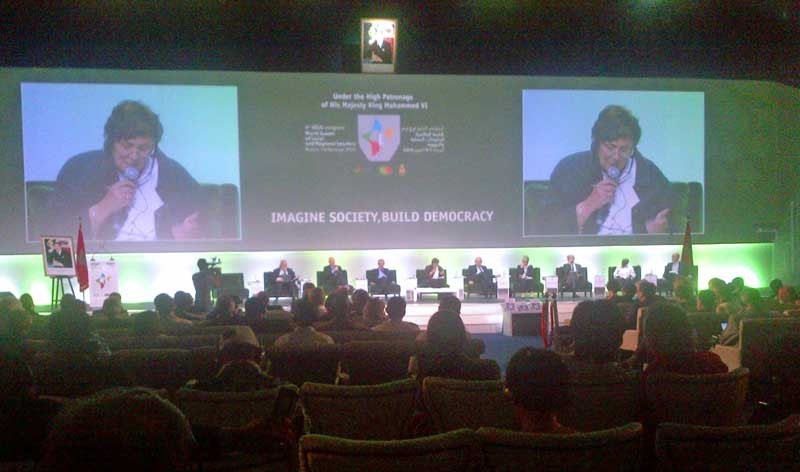
Rabat conference notes — Part 2
See my previous post, Rabat conference notes — Part 1, for my notes from the Les Ateliers de la Terre conference.
The second conference I went to in Rabat was hosted by United Cities and Local Governments (UCLG), a global association of municpal policymakers, academics, and political figures. Held on October 1-4, this conference was branded as a “World Summit of Local and Regional Leaders”, with the motto Imagine society, build democracy. Here are some recaps of the most memorable discussions:
Making Africa’s cities more attractive
The first event I went to was a panel discussion about making African cities more attractive [PDF] hosted jointly by the Africa chapter of UCLG and Jeune Afrique, a news magazine. It was held at the offices of the Moroccan Ministry of Foreign Affairs, so I was subject to a passport check at the door — good thing I decided to bring mine with me, just in case!
Cost of living
One of the topics of discussion was about the comparatively low cost of living in African countries. Even if a household living in Rabat could make twice as much money in Europe, they can afford to live a wealthier lifestyle by staying in Morocco. The panelists agreed that this is a great comparative advantage that African cities should promote to attract wealthy immigrants.
There are two points that I want to make about this, both of which were not addressed in the panel discussion. First, the cost of living in African cities is an advantage right now, but how long will that last? As economies grow (and
Africa’s economy will grow at a faster rate than Europe’s in the next generation), the cost of living will necessarily increase. I’m not convinced that there is anything intrinsically different about Africa that will allow middle-income Europeans to live here like royalty forever.
My second point is that the comparatively low cost of living in African cities is built upon a system of gross inequality and government lassitude. Case in point: there is a huge megablock redevelopment under construction near where we live in Casablanca — the Roudani Center. It will soon be upscale apartments and offices, but the living quarters for the construction crews are absolute squalor. On the edge of the muddy building site is a row of shacks, built with stacked cinder blocks and corrugated tin sheets for roofing. Walking past one day, I could see rats scampering about and bare lightblubs hanging from the ceilings, the wiring exposed and tangled. A mattress was tucked int he corner of one shack. There was no sign of plumbing. So what’s more important — that Morocco keeps attracting welathy Europeans, or that all Moroccans get an acceptable standard of living?
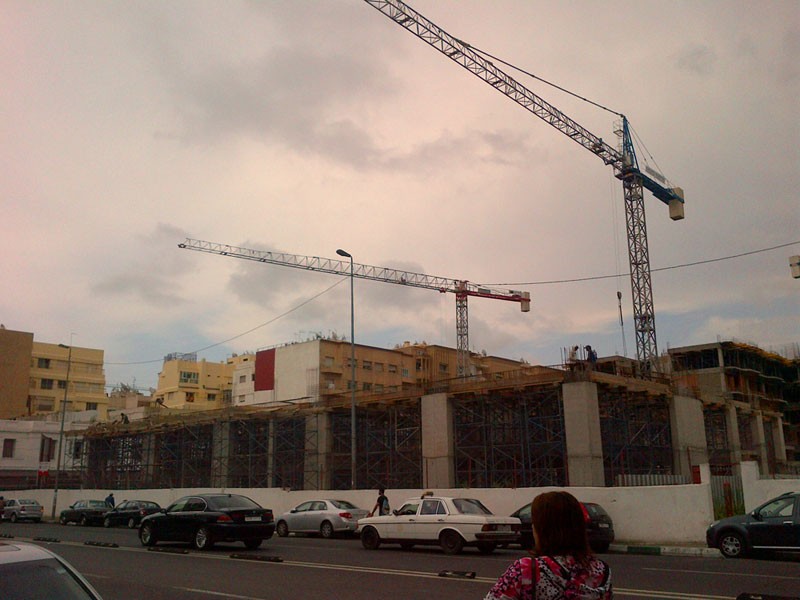
Big data
Charbel Fakhoury, representing Microsoft’s CityNext initiative, gave an overview of his company’s efforts to bring the power of big data to cities. By way of introduction, he declared: “By 2016, smartphones and tablets will put power in the pockets of a billion global citizens.” That’s powerful stuff.
He went on to argue that analytics and real-time information can help eliminate silos in public administration and help governments to make more informed decisions about service delivery and political priorities. He also noted that big data makes effective citizen engagement and two-way dialogue possible, and allows cities to provide personalised services for residents and businesses alike.
Most importantly, this all relies on a backbone of smart infrastructure. Every new piece of infrastructre should be equipped to provide feedback to the city — traffic lights that measure automobile and pedestrian volumes, garbage trucks that map out how much waste is generated by each city block, you name it.
Going back to Mr. Fakhoury’s opening statement, the million-dollar question will be how Microsoft can actually convince governments to use this data to empower citizens, and not keep this information confined to city hall. That requires a culture shift in many administrations, not just new technology.

Affordability
Chief Tokunbo Omisore, President of the African Union of Architects, spoke about how economic growth and investment shouldn’t leave future generations indebted. Affordability — for citizens and cities alike — is key. Solving our short-term needs by scrambling to fund large infrastructure projects does nothing for long-term sustainability.
These sentiments were echoed by Louis-Jacques Vaillant, executive director for external relations of the Agence Française du Développement. He cautioned Africa’s local leaders to avoid making the same mistakes that Europe did. In other words, don’t dig a financial hole to finance development. He pointed out that reaching out to the private sector for financing is one solution, but the key hurdle with that approach is that there is an imbalance
between the financing cycle (short-term interests) and the project cycle (long-term interests).
Sustainable development
Kenza Abbad Andaloussi from OCP group, Morocco’s state-owned phosphate company, highlighted a new urban development being undertaken by OCP, called Ville Verte Mohammed VI. Located in Benguérir, this city is the poster child for OCP’s efforts to add complex, value-added, integrated planning to its mining operations.
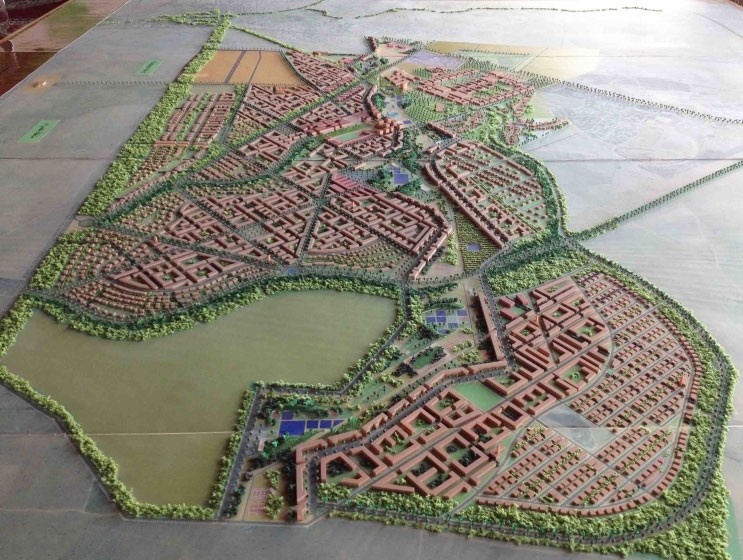
Ville Verte is 1000 hectares, with a projected population of 100,000 people within 25 years. Every single building will be LEED certified. The few existing neighbourhoods around the phosphorus mine are going to be incorporated into the Ville Verte’s master plan, which includes polycentric nodes loosely arranged along a rapid transit corridor. A linear park forms part of the transit corridor, making the spine of the city a haven for active transportation. The city also includes a major university and research centre, which is already in operation.
While I am generally averse to large-scale master planned developments (especially those with little to no involvement from the local municipality), it’s worth noting that OCP isn’t actually doing all of the construction itself. It has a list of building typologies that it want to see built in certain parts of the city, and other private firms will bid on a block-by-block basis to construct them, adhering to certain conditions such as LEED certification.
Citizen engagement
While I was at the UCLG conference, I happened to read an editorial in L’Économiste, a major national newspaper in Morocco. It lamented the fact that most Moroccans struggle to name their own mayor, but they are intimately familiar with the real urban issues of the day — the deplorable condition of streets and sidewalks, for starters. Among residents, there is a general feeling of powerlessness in the face of the great administrative machine which is city hall.
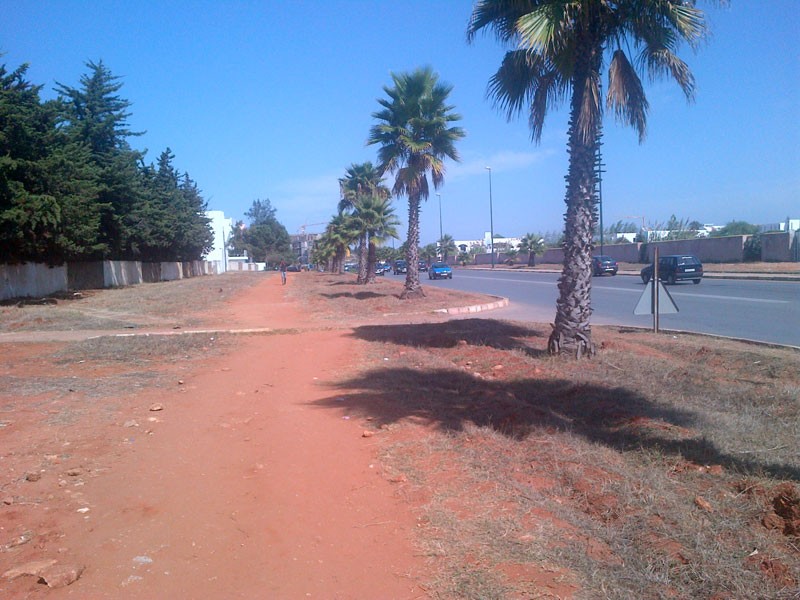
The editors of l’Économiste suggested that before hosting big showy conferences, Morocco’s leaders ought to focus on transparency and accessibility in their own municipal affairs.
This awareness was alive and well at a panel discussion on citizen engagement that I attended (if you’ll excuse the irony). With speakers from Sweden, Chile, Brazil, East Africa, and France, I got a good appreciation for the issues in different parts of the world. And with so many languages firing about, I was very grateful for the translators!
Anders Knape, president of the Swedish Association of Local Authorities and Regions, opened the discussion by saying that bureaucrats and politicians who are “in the system”, so to speak, often think that democracy has strong roots, that we can depend on policies and process, but that’s not the case. The system is sluggish, and it’s slow to respond to the unique needs of citizens. When it comes to public participation, people don’t want to be part of “politics” per se, but they want to be able to influence politics in very specific ways and on very specific issues. Rather than forcing them to work within the framework we have, governments need to adapt. And if they don’t, they can expect a deep-seated cynicism to take hold in their constituents. In many places, it already has.
Professor Jassy Kwesiga, representing a group of East African local government leaders, insisted that we think of public participation in terms of power balance. It’s important to treat citizens as the experts of their domains and really listen to what they have to say, rather than looking at them as simply the passive recipient of a service. Citizens aren’t experts in the political process — they do need legal backup and institutional support — but their concerns should be at the centre of decision-making. Especially in East Africa, this means accommodating the myriad local languages and engaging people who are illiterate or geographically isolated.
Jean-Claude Frécon, a French Senator, declared that a loss of confidence in governments has been bolstered by the economic crisis. There is no faith in public institutions anymore, and governments aren’t taking the initiative to turn this around — they’re disconnected. Which is understandable, since the political class is a woefully inadequate representation of the population. This situation breeds both apathy and extremism — two logical reactions to a government that doesn’t respond to the needs of the people.
Maria Lorena Zárate, president of Habitat International Coalition, talked about government’s tendency to want to control and formalise decision-making at the local level. She sees this as a wrongheaded move, especially when politicians try to manage so-called illegal slums on the edge of cities. These people are empowered. They have community. Improve their standard of living by harnessing that connection, not by bringing authority down on them. Furthermore, participation can happen without the involvement of official authorities. People have a right to the city; they also have the right to freely associate and self-organise. Government should not see itself as the master of this process, but as an equal participant alongside organised labour, civil society, and neighbourhood associations.
Silvio Caccia Bava, founder of the Pólis Institute, a think-tank in São Paulo, closed things off with a recap of the recent protests in Brazil. Two million people in 400 cities took to the streets. Who were they? Young adults. 80% of them had never protested before. 70% of them had no political affiliation. But they were united in protest largely because the creeping privatisation of common goods had made urban life unbearable. The retreat of government in Brazil had made the public sector not just irrelevant, but traitorous in the eyes of the people. The protests were largely a rebellion against the commodification of life.
Mr. Bava echoed the other panelists in urging governments to envelop themselves in culture of their citizens, not demand that the citizens learn how bureaucracy works. Protests are not simply fires to be quelled. They point to structural problems that need to be fixed from the bottom up.
Urban mobility and accessibility
Jean-Noel Guillossou of the Africa Transport Policy Program gave a very interesting talk in a small lecture hall about the current transportation issues facing many African cities. Current urban transportation patterns prioritize the fastest, heaviest, wealthiest, and most polluting forms of travel — that is, private automobiles. This mentality is at the root of inaccessibility in our cities.
He went on to talk about the importance of the informal sector in the public transit system. Common in many African cities, these are usually minibuses that straddle the line between a taxi and a city bus. They are affordable, easy for private operators to maintain, and hard for central governments to regulate. Each operator may have a schedule in place for its fleet, but a central scheduling system is immensely difficult to implement. So too are across-the-board improvements such as emissions standards.
As cities grow and invest in more large-scale rapid transit systems, what is the role of these informal minibuses? It’s important to recognise their legitimate position in the hierarchy of transportation modes and make sure that rapid transit doesn’t completely alienate the industry. This could mean opting for bus rapid transit instead of light rail, since the skills of the minibus industry are more readily transferable to a bus rapid transit system. This way, you can hire more local people and keep money flowing within the local economy. A jump straight to light rail may result in high unemployment and leave a whole section of the population in the lurch.
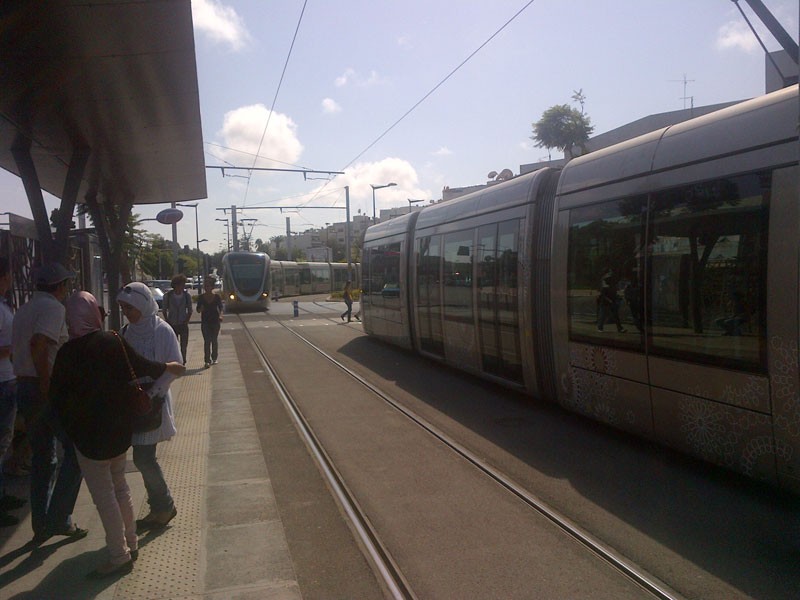
Disasters and risk management
Margareta Wahlström, head of the United Nations Office for Disaster Risk Reduction (UNISDR), opened the panel discussion about disasters and risk management by talking about access to information. Actively monitoring disaster risk is increasingly necessary and viable as new technologies become more affordable. Access doesn’t just mean “it’s out there somewhere” — information needs to be easy to access by citizens, and it needs to be easy to manage by those who are responsible.
Claudia Schneider, also from UNISDR, emphasised that the principle of resilience begins by knowing more. Knowing more about how disasters can affect a city’s infrastructure; about what resources are in place now; about what deficiencies the system has; about when a disaster is likely to occur; about who will be notified, when, and by which methods; and about how citizens can feed information back into the system.
When it comes to risk assessment, national averages mean nothing. We need to be able to drill down the data to a scale that makes sense. Furthermore, cooperation between cities is necessary — disasters don’t respect administrative boundaries.
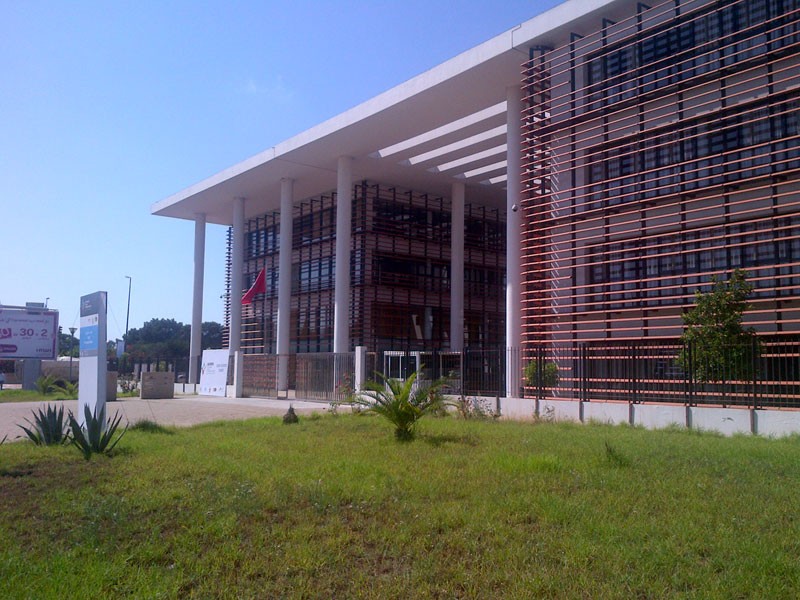
Land development
Lydec, the company in charge of service delivery for utilities and waste management in Casablanca, presented a discussion about infrastructure financing. Honestly, the details of financing models were not all that interesting to me, but what I really got out of this session was an appreciation for the massive role that the private sector plays in Moroccan land development.
Development on the periphery of Casablanca is happening in complete absence of a master plan. That said, Casablanca does not only exist as an administrative body. Just because there is no master plan doesn’t mean that there is no planning going on. The current trend is “strategic urbanism”, based around large projects that have enough private financing to stand on their own.
Strategic urbanism presents a challenge for government — since it doesn’t have any rigourous policy in place to judge a project’s vision, the city is unwilling to raise objections lest they lose the investment. What this really means is more sprawl with little regard for affordability or complete communities. An ineffective property tax system further exacerbates the irrelevance of the state. If government is not involved in planning, financing, or taxing development, why bother regulating it?
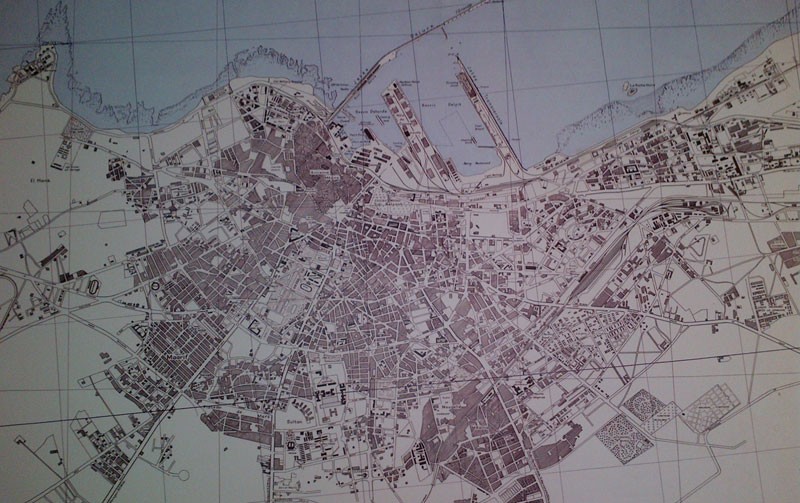
That’s all, folks
These notes cover most, but not all, of what I saw and heard at the UCLG conference, and there were a lot of other sessions that I didn’t get a chance to see. The conference was a four-day affair with loads of simultaeous debates, lectures, cocktail receptions, and ceremonies. And I haven’t even touched on the trade show that was happening at the same time!
The full programme is on the UCLG website, so if there’s a topic you see there that I haven’t talked about, leave a comment and I’ll let you know if I remember anything about it.
Sam Nabi
Post a comment